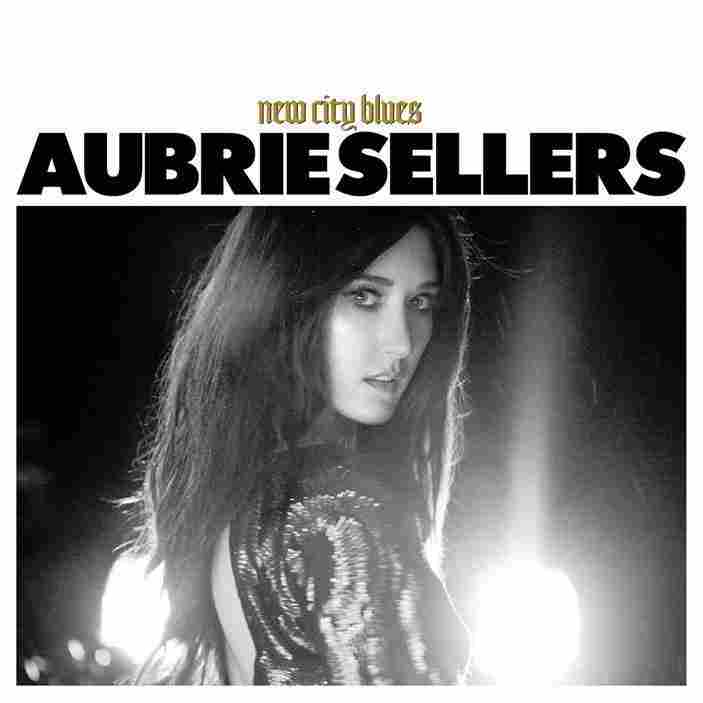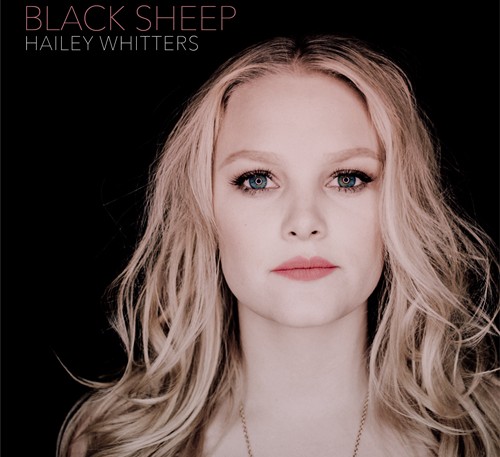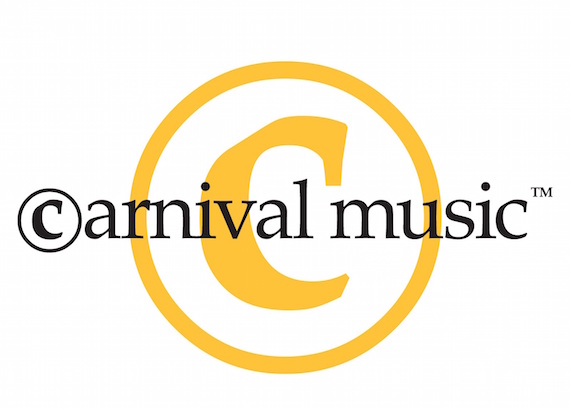

Frank Liddell
Self-proclaimed “music company” Carnival Music, led by powerhouse publisher and producer Frank Liddell, was born out of frustration. In the early 1990s, Liddell left publishing company Bluewater Music to relaunch Decca Records in Nashville.
“I opened and closed Decca, or I guess ran it into the ground,” says Liddell. “I was excited to work for a record company because I had a real job and insurance, but it wasn’t too long after I went to work there that I realized that I was not cut out for it. I learned a lot and I loved the people I worked with and the artists, but I realized early on that I liked being independent. Toward the end of my time at Decca, I had been working with a songwriter named Bruce Robison for a while. I had known him since 1990, and in fact I had tried to sign him at Bluewater but the timing just didn’t work out.”
Around the same time Liddell decided to change directions in his career, a songplugger friend, Travis Hill, was intent on starting his own company.
“I was still working at Decca. In the meantime, Travis said, ‘I need to go start my life,’ so I said, ‘Here’s a bag full of songs. Go start.’” Liddell says. “He started the doors [at Carnival Music] and he was here for a year before I ever came over.”
Carnival Music opened in 1997 with Robison as the company’s first signing. The roster now includes writers and artists such as Brent Cobb, Scooter Carusoe, Troy Jones, Aubrie Sellers, Marla Cannon-Goodman, Dustin Christensen, Derik Hultquist, David Nail, Stephanie Lambring, Gretchen Peters, Adam Wright, Hailey Whitters, Waylon Payne, and Mando Saenz.

Emily Schiraldi, Carnival Music’s Senior Director of Creative
“We signed [Bruce] because we thought he was great,” recalls Liddell. “Looking back over the past 25 years of my life and almost 20 years of Carnival, those are the things we’ve done well. We signed things that we love, that we can be proud of, that we can make have some financial success but that we can also brag about the quality of the music, not just the stats behind it.”
Though, those stats are enviable.
A sampling of Carnival’s hits includes songs recorded by Kenny Chesney (“Anything But Mine”), Billy Currington (“People Are Crazy”), Dixie Chicks (“Traveling Soldier”), Miranda Lambert (“All Kinds of Kinds”), Tim McGraw (“Angry All the Time”), and David Nail (“Let It Rain”). Newer cuts include “Rock On” (the first single for Tucker Beathard), “All the Way to Me” (on Dierks Bentley’s upcoming album, Black), and “Wanna Be That Song” and “Time Well Spent” (on Brett Eldredge’s album, Illinois).
With an eye toward curating top quality music, the Carnival staff willingly takes the gamble that quality can translate to a longer wait for radio success. Written by Robison, “Travelin’ Soldier” was 13 years old before it became a hit for The Dixie Chicks. “Angry All The Time,” another Robison cut, was 11 years old. “All Kinds of Kinds,” penned by Phillip Coleman and Don Henry, was 15 years old before Lambert released it as a single in 2013.
“I’m not thrilled about that all the time, because I hope when we have new writers come in, we don’t have to tell them, ‘You’ll have a hit in about 10 years,’ but I also think it goes to show the power of a song and that we understand that,” says Liddell, who is married to Lee Ann Womack. “We believe in a writer’s art and we work with them and continue to work it for as long as we think it’s viable. We find people who have talent and we try to embrace new opportunities. We sort of have a land of misfit toys, and we allow those people to breathe in their own way.”

Courtney Gregg, Carnival Music VP, Artist and Writer Development
“We are in it for the long haul,” says Courtney Gregg, VP, Artist and Writer Development. “It’s not like, ‘Oh, two years have come up and you haven’t done anything, so bye, onto the next one.’ Scooter has had songs cut maybe two weeks after he wrote them. We hope it happens tomorrow, but if it doesn’t, if it takes 10 years… you just take a step back and say this is worth fighting for.”
 Aubrie Sellers is one of the unique writer-artists Carnival has signed recently. She is Womack’s daughter from her first marriage, to songwriter Jason Sellers.
Aubrie Sellers is one of the unique writer-artists Carnival has signed recently. She is Womack’s daughter from her first marriage, to songwriter Jason Sellers.
“She’s obviously grown up in the business,” says Liddell. “She had left school, and thought she would go off to Los Angeles and act, but she’s always sung with Lee Ann and she’s always been a really good singer. So when she came back to Nashville, she talked to me about working together. I wanted her to have something better than working with her stepdad, but over time I realized she was serious.”
Working with Liddell and Carnival songwriter Adam Wright, Sellers crafted music that showcased her traditional-sounding voice, juxtaposed against a raw, new “garage country” sound on her debut New City Blues, released through a partnership with the artist, Carnival Music and Thirty Tigers.
“We worked with her for several years, developing her sound and live show,” Liddell says. “It’s fun to watch it continue to grow and develop more interest. She never said, ‘Mom, Dad, Stepdad, go get me a record deal.’ She wanted to find her sound and hone in on it and make it what it can be. I love that about her. “
 Carnival artist-writer Hailey Whitters contributed “Low All Afternoon” and “The Real Thing” to Martina McBride’s upcoming project, Reckless. Whitters also teamed with Matraca Berg to pen “Long Come To Jesus” for the up-and-coming artist’s own album, Black Sheep, released on Oct. 2 on Carnival Music. Emily Schiraldi, who is Carnival’s Senior Director of Creative, has championed Whitters’ writing and vocal abilities since the burgeoning singer-songwriter was a student at Nashville’s Belmont University.
Carnival artist-writer Hailey Whitters contributed “Low All Afternoon” and “The Real Thing” to Martina McBride’s upcoming project, Reckless. Whitters also teamed with Matraca Berg to pen “Long Come To Jesus” for the up-and-coming artist’s own album, Black Sheep, released on Oct. 2 on Carnival Music. Emily Schiraldi, who is Carnival’s Senior Director of Creative, has championed Whitters’ writing and vocal abilities since the burgeoning singer-songwriter was a student at Nashville’s Belmont University.
“When Hailey’s first cut is a 100 percenter [solo write] for Martina, that’s validation of things we are working for,” says Schiraldi. “Not many people can say their first cut was a [solo write] for an established artist like that.”
“I’ve sat a bit on the sidelines with Hailey and I’ve watched her become a great writer, and now to have songwriters like Matraca Berg say, ‘I want to write with Hailey’…To watch this grow organically, that to me is what Carnival is all about,” adds Liddell.
If some of Liddell’s biggest successes have come from working with female artists such as Womack and Lambert, he says it’s because female artists are taking more creative risks.
“I feel there are a lot of females that have their backs against the wall, and because the climate hasn’t been great, they have nothing to lose,” says Liddell. “And they are doing two things: singing subject matter that is important to them, and they are singing melodies. I would love to work with more males. David Nail, I think he’s a great singer. Circumstances led me to work more with females, rather than us having a knack for working with females.”
Schiraldi agrees that more females are holding their own, and speaking their minds, as writers and artists. “I bang my head against the wall any time I play a song for a female artist, and as soon as it’s done, she’s looking around at everybody else like, ‘Am I supposed to like this song? What do you think?’ Whereas with artists like Hailey and Aubrie, they have a vision and will tell you exactly what they think.”
For Liddell and company, the pinnacle of success isn’t just measured by the number of hit songs, but by the successes of dreamers who trust Carnival with their songs and ambitions.

Troy Jones
Songwriter Troy Jones had spent 10 years in Nashville, in hopes of getting a hit single on radio, but the daily grind left him unsuccessful and drained. Shortly after hearing that Jones had been let go from a publishing deal, Liddell reached out.
“I said, ‘I hear you are out of a deal.’ He said, ‘Yeah,’ and I said, ‘You’re not anymore. I’m signing you.’ I thought he would have been really excited, but he said, ‘Hey, I’m on vacation with my family but I’ll be in Nashville in a couple of weeks, can I come see you?’ I said sure.”
In truth, prior to that call, Jones had no intentions of returning to Nashville. Standing in the kitchen in Florida, Jones had been preparing to thank his family for their years of supporting his ambitions as a songwriter, but he was going to return to the paper mill, where he had worked for 20 years before trying his luck in Nashville.
“He was talking with his wife about, ‘How am I going to tell the kids?’ and that’s what he was gearing up for when the phone rang,” says Liddell. “It threw him so bad. Later he told me, ‘I wanted you to know that I was honored. I just didn’t know how to compartmentalize it, getting that kind of call at that moment.’”
Jones did return to Nashville and signed with Carnival. He has gone on to pen two No. 1 singles for Billy Currington—“People Are Crazy” and “Pretty Good At Drinking Beer.” His other cuts include Kenny Chesney and George Strait’s “Shiftwork,” as well as Joe Nichols’ “Like Me” and “Shade.”
“That means way more to me than any trophy, or sitting onstage,” says Liddell. “That’s what this is about… about poets expressing themselves and changing people’s lives.”


Category: Exclusive, Featured, Publishing
About the Author
Jessica Nicholson serves as the Managing Editor for MusicRow magazine. Her previous music journalism experience includes work with Country Weekly magazine and Contemporary Christian Music (CCM) magazine. She holds a BBA degree in Music Business and Marketing from Belmont University. She welcomes your feedback at jnicholson@musicrow.com.View Author Profile


